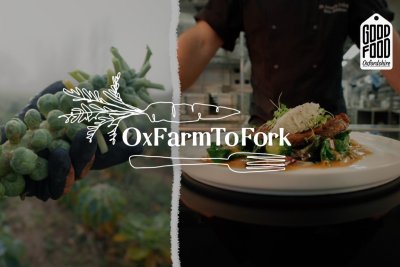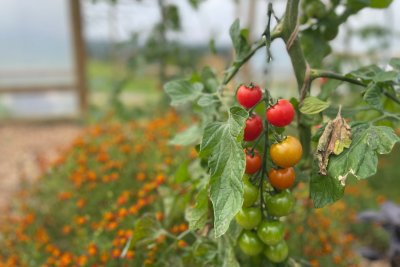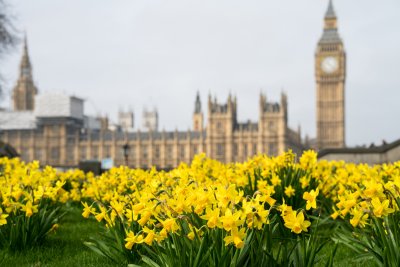News • Good Food Trade Campaign
Channel 4 News asks "Who is responsible for securing food for vulnerable people in a no-deal Brexit?"
Channel 4 has broadcast a news feature (19 September) covering Sustain's concerns about food supplies for vulnerable people in the event of a no-deal Brexit.
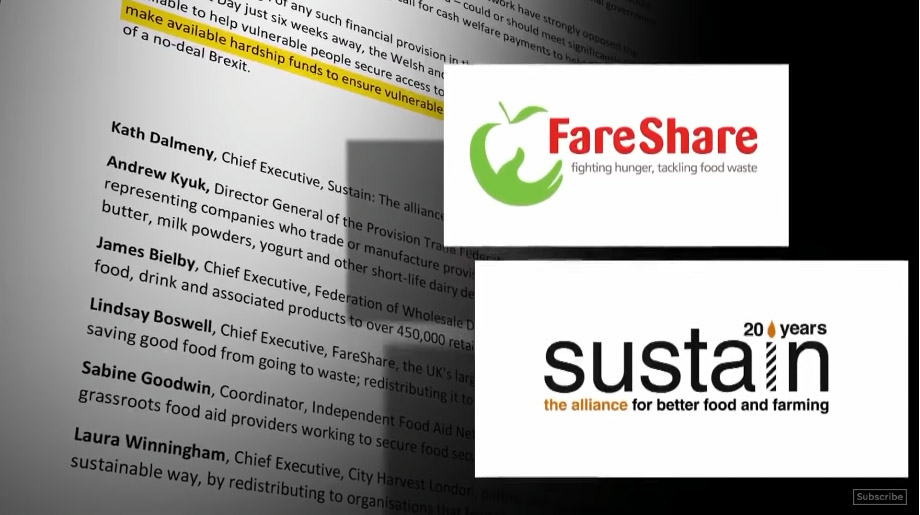
The following is a transcript of the Channel 4 News feature, broadcast in during the 7pm News on 19 September 2019.
Presenter: Food supplies and food banks have questioned whether they would be responsible for securing basic supplies for vulnerable people if a no-deal Brexit led to food shortages. Earlier this month, the Food and Rural Affairs Minister Zac Goldsmith said his department was "not responsible" for the supply of food and drink to the population in an emergency, adding that food suppliers should respond to any disruptions themselves. So, in a no-deal Brexit, who is responsible for feeding those most in need? Ciaran Jenkins reports.
Ciaran Jenkins: The risk is spelt out in the Government's own Yellowhammer document. In a no-deal Brexit, food prices could rise. Those on a low-income will be disproportionately affected. Glasgow's Drumchapel Foodbank is already under strain.
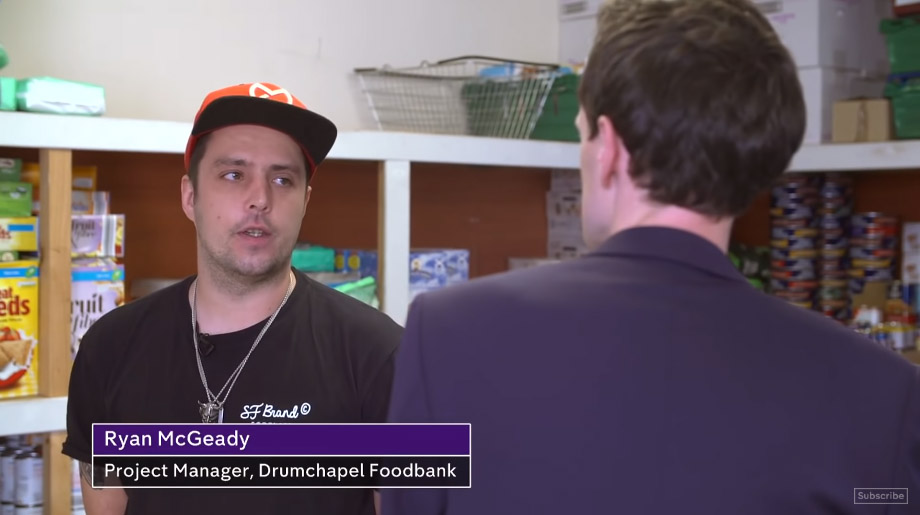
- Interviewer: In case there was a no-deal Brexit, could you feed people?
- Ray McGeady, Project Manager, Drumchapel Foodbank: No, not at the moment, no.
- Interviewer: If demand goes up, whose job is it to step in?
- Ray McGeady: I definitely think - with food prices, food shortages - and just trying to get round everyone - there is going to be a huge issue, I think - for sure.
- Interviewer: So you expect, potentially, more people needing to come here?
- Ray McGeady: Yes - more people needing to use the service, maybe more frequently as well, I would say.
- Interviewer: So who's going to provide the extra supplies that are needed?
- Ray McGeady: That's what we're worried about.
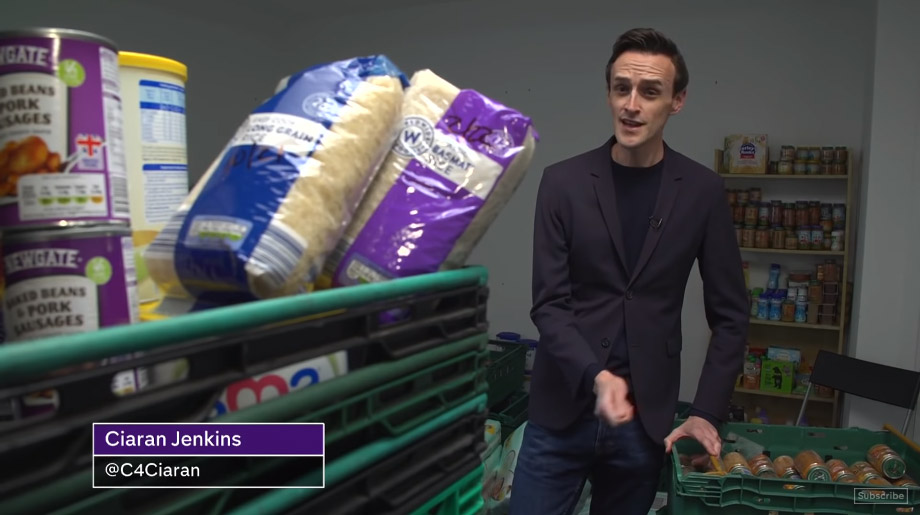
Ciaran Jenkins: If anything like the scenario described in the Government's own Yellowhammer document comes to pass, then who is ultimately responsible for feeding those people most in need? The UK Government said earlier this month it is not responsible for food supply in the event of an emergency. The expertise, it said, lies within the food industry. Well today, some major figures from the food industry, and those who help feed those most vulnerable are speaking out.
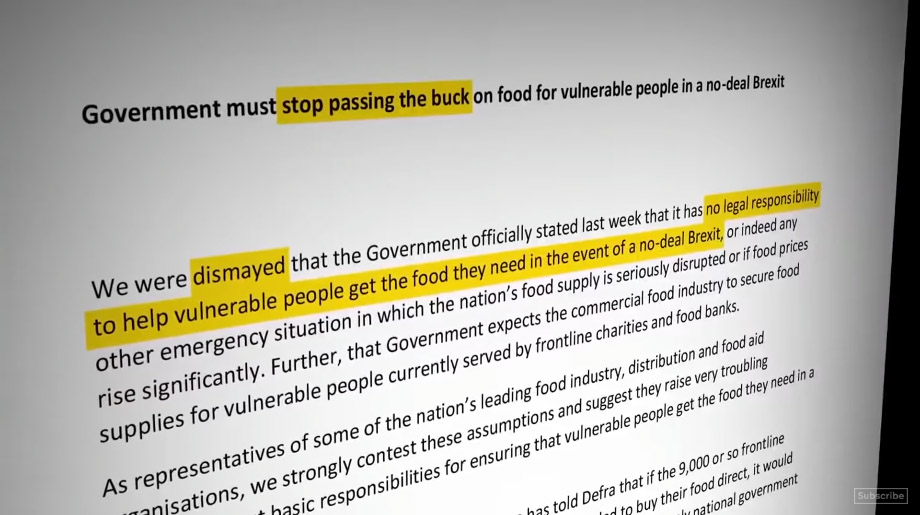
Voiceover: In an open letter, they call on the UK Government to "stop passing the buck", saying they were "dismayed" when the Government said it had "no legal responsibility to help vulnerable people get the food they need in the event of a no-deal Brexit". They are demanding the UK Government "immediately make available hardship funds so vulnerable people can get the food they need".
.jpg)
The letter is signed by FareShare, a huge charity that redirects surplus food; by the food and farming alliance Sustain; by the Federation of Wholesale Distributors, whose members serve almost half a million UK businesses.
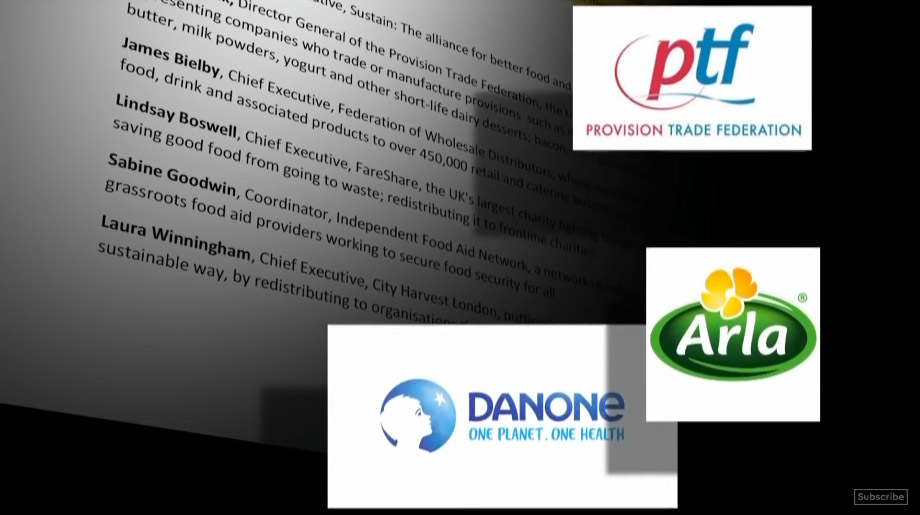
And by the Provision Trade Federation of meat and dairy companies, whose members include industry giants like Arla and Danone. Its Director General told us today they have not had contingency discussions with the Government.
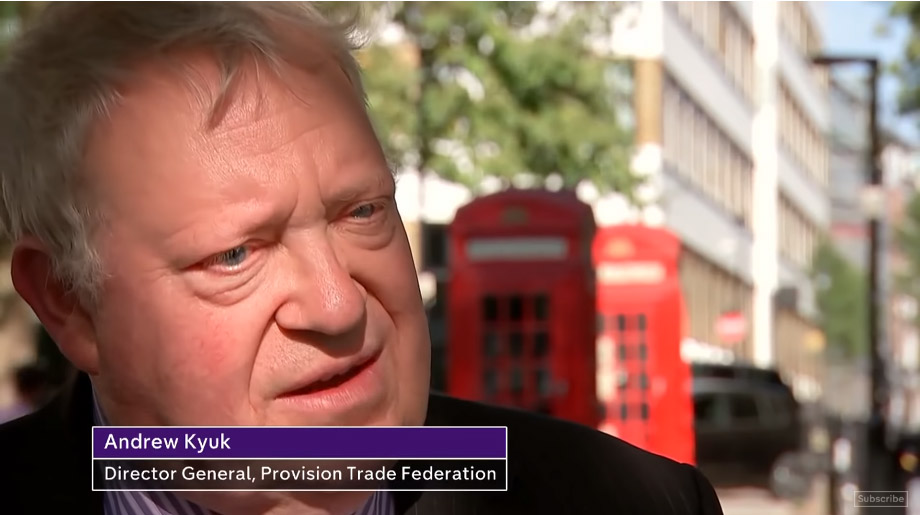
Andrew Kuyk, Director General, Provision Trade Federation: If the Government does believe that there is a serious risk of those sorts of shortages, one would, I think, expect goverment to have contingency plans in place. They wouldn't necessarily want to share them too widely, but we would hope that those plans are there. And I would have hoped that by now, we might have been more closely drawn in to those kinds of discussions.
Voiceover: Defra - the Department for the Environment, Food and Rural Affairs, said that it is meeting regularly with industry to make sure that they are prepared for leaving the EU. And that the industry is well versed in dealing with scenarios that can impact food supply. From his farm in Knutsford, Ed Salt supplies dairy products across the UK and has concerns.
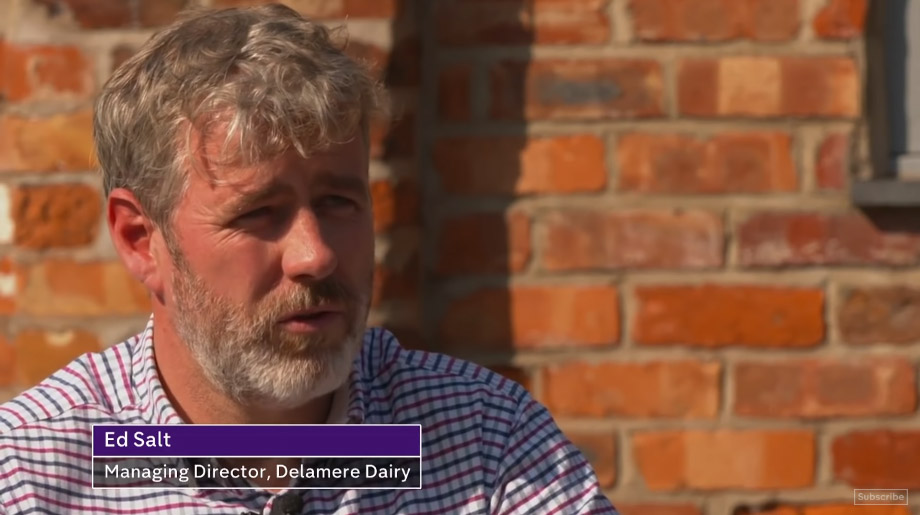
Ed Salt, Managing Director, Delamere Dairy: It was an element of surprise when we saw and heard that Defra had made a statement early in September that they were pushing the responsibility to deal with any potential food shortages back to the supply base.
In reality, it's not scaremongering. You know, when you look into the detail, Government has said that there won't be shortages of food. And in reality there won't be a shortage of food, but there may well be a shortage of some foodstuffs. And that shortage will only push prices up.
Ciaran Jenkins: Unlike in England, the Governments in Scotland and Wales have put money aside to help people who may struggle with food costs in a no-deal. But they suggest that they are not legally responsible for emergency food supplies either.
Recording returns to the foodbank in Glasgow:
- Interviewer: So who really should take the responsibility?
- Ray McGeady: Well, the Government. It's their idea to push through for a no-deal, so really they should be prepared for all of the implications that come with it.
- Ciaran Jenkins: The Government's advice is to "Prepare for Brexit". But some of those who feed the most vulnerable fear that the Government's own preparations are falling short.
Broadcast just after 7pm, Channel 4 News, 19 September 2019
Published Thursday 19 September 2019
Good Food Trade Campaign: Campaigning for good trade that benefits people and the planet at home and overseas.

